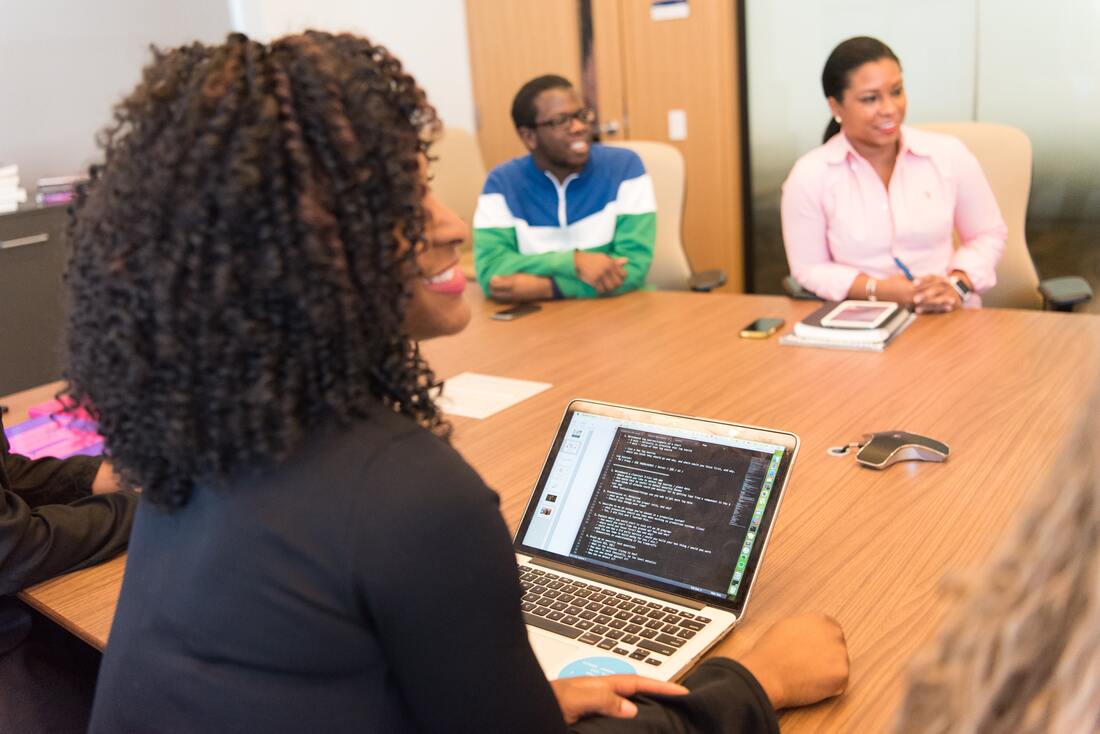Murray Homeschool Academy |
|
*Before you read this post, make sure to check Part 1 & 2 of the series "10 Conversations Parents Need to Have With Their Kids Before College Begins" Everyone knows that hindsight is 20/20, and when it comes to preparing your teen to attend college--I want to share the three things I wish I had known before my daughter Jayda went to college. Don't Take Too Many Credits Your First Year! Photo by Andrea Piacquadio The first thing won’t surprise some of you, but taking 19, 18, or even 17 credits is too much for a freshman! Your over-achieving teen may want to tackle more credits, and they may have friends doing the same---but please encourage your student to reduce the credits to a more manageable course load. Be warned, it is common for engineering and science majors to take 17 plus credits to graduate in four years, but this can be too much pressure too soon. Friends and family tried to warn us, but Jayda took 19 credits in her spring semester, and as predicted by onlookers, it did not go well. She was juggling her challenging course load, tutoring sessions, social activities, physical and emotional wellness, and as predicted--a couple of the balls dropped. “Balls dropping” wasn’t the end of the world, but it did mean summer school was in her future! So take it from us, encourage your young adult to take a balanced amount of courses. Understand Your Child is a Legal Adult Do you see my Jayda? I was blown away by this professional picture she took at a conference in Las Vegas during her first semester of college. I said, "When did this happen? When did she turn into an adult?!" Secondly, I wish I understood the implications of having my child as a legal adult. I quickly learned that although the university would send us a bill, I would only have a right to her student account if she gave permission. Not only that but since she was 18, helping her if she was ever in an emergency would be difficult or even impossible. I know of a young girl who had an accident at school, but the parents could only get information from the hospital because she was conscious and could consent. Another family I know, whose son attended school in a different state, was injured on campus. The hospital kept in touch with the school but did not pass on the "private information" to the parents. So, when I learned about getting power of attorney for Jayda, it made perfect sense. There's a great company that handles everything at a very affordable price and has given me the peace I need while my daughter is off at school. With power of attorney, I can help her without privacy becoming an issue. Use my link to get 20% off: https://share.mamabearlegalforms.com/Ayanna to get your paperwork taken care of--better now than when a crisis hits. Mental Health Should Be A Top Concern Photo by Alex Green from Pexels And finally, the third, and one of the most important things I wish I had known before sending Jayda off to school, was how depression, anxiety, and suicides are at an all-time high in our country. Mental health should be a top concern of every family. Read these stats from the Health Research Funding Website: Teen Depression Statistics
Photo by SHVETS production So, although I had prepared my daughter to care for her mental health, she was surrounded by struggling college students. In fact, during the first week of school, an art student in her dorm was on the verge of suicide. And every month, Jayda would call, or I'd receive an email from the school informing us of a student death. Every month, a student died of suicide, drugs, or an unknown cause at her school. Plastered on every wall were posters about suicide prevention. And during her first year, Jayda called the suicide helpline 3x to get help for other students. I had no clue it was so bad on campuses around the nation. Some schools don't share when a student commits suicide, but it is happening, and I want other parents to know and become aware of the problem. Photo by Thought Catalog Since the Covid-19 pandemic, mental health struggles have sky-rocketed. Parents, 5,400 estimated suicide attempts are made each day by teens in the United States. Academic stress, new friendships, unhealthy romantic relationships, financial pressure, family issues, peer pressure, conflicts, and more can negatively impact your child. Some students do not come home after going off to college. They leave and never return. Can you imagine the heartache? Literally, three students died during finals week at the end of Jayda's first year of college. Please, please tell your child the most important thing is their life. They might be failing a class, on academic probation, or even on the verge of being kicked out of school--but please assure them that you value their life over everything. I remember telling Jayda, "I want you to know that, even if you need to drop out--your dad and I will be okay because we value your life above everything else." Ayanna (left), Jayda (middle), Bryan (Right) I sent Jayda off to school mentally and emotionally strong, and trust me--she had her moments of struggle--but I never knew to talk with her about how to handle those struggling around her. Once the year ended, Jayda and I reflected upon her year. It was a good year, but she had some challenging moments. We both agreed that regular counseling sessions during the school year would help her navigate the future pressures of college.
In summary, not taking too many credits, the legal implications of having an adult child, and the mental health crisis on campus are the three things I wish I had known before sending Jayda off to college. I'd love to hear from you--what did you think about this blog post? What resonated with you? Did anything surprise you? For those of you who have gone through this already, what were the three things you wish you knew before sending your child to college? Comment Below.
0 Comments
10 Things Parents Need to Talk About With Their Kids Before They Go Off to College (Part 2)7/3/2023 Jayda, my eldest posing at the end of senior year! Click Here to Read Part 1 The end of Senior Year can be such a blur, but there are so many meaningful conversations that parents should have with their young adults before sending them off to college. Here are the remaining five topics I think all families should prioritize to discuss with their young adults: #5 Conflict Resolution Communication and conflict resolution skills are also crucial for college success. Encourage teenagers to communicate effectively with their professors, peers, and roommates. Try not to step and do the work for them but teach them how to resolve conflicts in a respectful and productive manner before they leave your home. In the first year of college, we had to role-play with Jayda about informing her professor that she would be dropping his class and not participating in the class project. Helping her to navigate the professor student relationship was a big deal for her that ultimately has equipped her to also have difficult conversations with her internship managers. In addition, we helped Jayda practice how she would talk with her roommate about having guests sleep over and other roommate boundary issues. Talking with a professor can be intimidating and so can addressing a touchy subject with a roommate. Direct and respectful communication goes a long way these days. #4 Communication Expectations Photo by cottonbro studio Maintaining family connections and support systems while away at college is essential for parents and teenagers. Encourage your teenager to stay in touch and communicate regularly. In addition, set up expectations of how often you want to speak to your child. I expected that I would get a weekly touchpoint with my daughter. However, in the first year, Jayda surprisingly called me every day. She wanted to stay connected and needed our support more often than I expected. She was encountering so many new people and situations, and I made myself available to listen and give time to her--even though she often called late at night. We used apps like MarcoPolo, GoogleMeets, GooglePhotos, Email, and Texting, all to stay in touch. Originally from Seattle, WA, my husband Bryan attended college at the University of Oregon. And as an out-of-state student, he remembered how special it felt to get mail. With that in mind, he committed to writing Jayda a weekly letter and sending her a monthly care package. My husband and I also felt it was important to see her in person, meet some of her new acquaintances, and ensure she was adjusting well. We planned for her to come home for Thanksgiving and Christmas and then made the time to visit her for Parent's Weekend and her birthday. Visiting was a great blessing because she needed and welcomed our encouragement and support every time we visited. She wanted all our hugs, kisses, and words of encouragement. Remember, the transition to college can be challenging for parents and teenagers. By having open and honest conversations about these important topics, you can help your child navigate the college experience and set them up for success. #3 Social & Spiritual Engagement Photo by Tima Miroshnichenko Address social responsibility and community engagement opportunities. Encourage your young adult to get involved in campus organizations and volunteer opportunities. Jayda took the time to gauge her academic load before committing to too many groups. Her priority was academic success, but we encouraged her to prioritize involvement in 1-2 student groups for a more well-rounded college experience. Once she had a handle on her schedule, Jayda regularly participated in art and musical events and volunteered in the community and on campus. Seeing Jayda seek out different Christian Organizations on campus was encouraging. She attended a few student groups before finding a group where she fits in. In addition, she found a local church off campus that provided additional support. For our family, our desire for Jayda to find people on and off campus would support her desire to grow closer to God. College students are guaranteed to grow academically and socially--so if spiritual growth is one of your desires, make sure the school they attend has options for your student. Help them search for the organizations on campus and in the local community. #2 Career Exploration & Job Readiness Photo by Christina Morillo Career exploration and job readiness skills are also crucial for college students. Encourage teenagers to explore their career interests and seek internships and other job opportunities. Teach them or ensure they attend a workshop or webinar on creating a resume and cover letter and preparing for job interviews. Most schools have Career Centers that can help with these types of skills. Also, remember that many deadlines for summer internships happen in the fall, so encourage your student to visit and get acquainted with their services at the beginning of the school year. Now something to consider, the internship might be in a different state or city, so you won't get to spend an entire summer with your college student. Weigh the pros and cons of being away for the summer. Your student might want to hold off the first year and intern his second summer. Or like my daughter, Jayda, they might jump right into an internship across the country! Jayda in the middle at the Amazon Headquarters in Seattle, WA. #1 Emotional Well-Being & Stress Management Photo by Ketut Subiyanto Self-care and stress management techniques are also essential for college students. During the pandemic, all of my teens had a counselor. This proved invaluable as they learned the importance of caring for their mental and emotional health.
Research what the University provides regarding resources, such as counseling services, to help your young adult manage stress and other mental health concerns. Get them use to making their mental health a priority. This topic alone deserves its own blog post so I am going to dive deeper in my upcoming post entitled, "3 Things I Wish I Had Known Before My Daughter Went off to College" Jayda Murray Senior Year, Class of 2023 Preparing for college can be an exciting yet overwhelming experience for parents and teenagers. Last year, our family drove over 11 hours to move my daughter into her dorm room for her first year. As a mother, I was going over last-minute things for her to remember and review--but once we packed up and said “Goodbye,” I knew Jayda would have to put the information to practice that she genuinely believed was necessary. As your teenager transitions from high school to college senior year of high school, parents should discuss several important topics with their child to ensure a smooth transition and a successful college experience.  Photo by Keira Burton #10 Budgeting & Financial Responsibility One of the most critical areas to focus on is budgeting and financial responsibility. Before your young adult leaves home, ensure they have some experience budgeting. Teach your teenager how to manage (save, invest, donate, spend) their money and create a budget that works for them. Discuss the importance of saving and the potential consequences of overspending. Encourage them to seek financial aid and scholarships to help offset the cost of tuition and other expenses. Ensure they have the skills to spend scholarships, grant money, and any loans acquired properly. Taking a Personal Finance class and reading books on Money Management will help them gain these important life skills. Parents will also want to communicate what they can expect from you financially while they are in college. What will you pay for? Meals and Housing? Books? Travel to and from home? Will you send a monthly stipend? Also, discuss what you can actually afford financially when it comes to paying for school. Will your student need a part-time or full-time job to cover college? Discuss your willingness to take out a Parent Loan and how much. Communicate if your student will be expected to take out loans to pay for college. For more information, check out this article on Article on College Student Spending Photo by Karolina Grabowska #9 Time Management and Organizational Skills Time management and organizational skills are also essential for college success. Encourage teenagers to develop a schedule to balance their academic and social lives. Discuss strategies for prioritizing tasks and managing their workload. Provide them with resources and tools, such as a planner or calendar, to help them stay organized. My teens love using tools like Google Calendar, Notion, and a traditional whiteboard to stay on track. For those teens who need more help with their Executive Skills, search for a workshop or program that can teach these vital skills. Photo by MART PRODUCTION #8 Health, Drugs & Sex Awareness Maintaining a healthy lifestyle is another critical topic to address. Teach your teenager the importance of healthy eating and regular exercise. Encourage them to make healthy choices and provide them with resources, such as information about campus fitness centers and healthy dining options. My daughter got in exercise walking to and from classes and through the Physical Education classes on campus. She loved the pilates class she took and was proud of the way she strengthened her body. Help them create the habit of taking vitamins, drinking water, and taking any medications without your constant reminder. I ensured Jayda had a little pharmacy for the common cold, flu, covid, menstrual cramps, sore throat, etc. We of course addressed sexual choices, birth control, and sexually transmitted diseases. It is our desire that our daughter waits until marriage before having sex, but she will make her own choice. Whatever she decides, as her parents, we want her to know how to stay as safe as possible. In addition to their sexual and physical health, talk with your teen about the common types of drug use in college. I had these conversations with my daughter, and still, she was surprised at the number of college students who take drugs to have fun and some to function. “Mom, I think these kids are on drugs,” she whispered to me on the phone after the first week of school. I replied, “Yes, Jayda, they are on drugs.” “But Mom, some are planning to try even harder drugs.” That‘s when I sent her the videos of kids dying of fentanyl on college campuses. I wanted to warn her and help give her information if she was ever in a situation where she needed help in the case of an overdose. Hidden Epidemic: US fentanyl crisis worsens | Nightline Other videos I recommend for parent's to watch: What is fentanyl? KSAT Explainshttps://www.youtube.com/watch?v=wpYcOznq0d8 One Pill: Fighting Fentanyl https://www.youtube.com/watch?v=KY57P-vKovY Photo by Oleksandr Pidvalnyi #7 Personal Safety Personal safety and security measures are also crucial for college students. Last year I was hyper-aware of the murders, shootings, missing students, and common crimes on campus nationwide. Instead of worrying, please take steps to discuss ways to stay safe on campus and in their living environment. Most schools publicly rate their campus safety level. This is vital information to consider when selecting a school. In addition, many schools have safety orientations for incoming students, so ensure your child is equipped and aware of some safety challenges and sign them up. Consider enrolling your daughters, in particular, in a self-defense class--the more prepared, the better! Talk about the pros and cons of leaving their dorm rooms open. Teach them about the dangers of alcohol and drug use and how to protect themselves from sexual assault and other crimes that happen when drugs are involved. Safety issues can also arise with roommates. If your teen feels unsafe in their room, ensure they are confident to talk with the Resident Director on steps to change rooms and/or roommates. Also, cover safety tips when using Rideshare companies like Uber and Lyft. Here is a great article to read. Like thousands of other families, my teens often utilize Rideshare companies, and I ensure I can track every ride. The ride information gets sent to my phone, and I can follow each pick-up and drop-off. In addition, our family utilizes Life 360App, which tracks everyone's location via the cellphone. This was particularly helpful because I could see her exact whereabouts when Jayda traveled to Las Vegas and Washington D.C. during her first semester. Photo by Polina Tankilevitch #6 Academic Strategies for Success Discuss academic expectations and strategies for success. I knew Jayda would need tutors for her math classes even before school started. Encourage your young adult to use educational resources like on-site or online tutoring and study groups. Discuss the importance of attending classes and participating in class discussions. Help them develop effective study habits and time management skills. If they need to beef up their writing or math skills, enroll them in a summer class or hire a tutor before leaving for college. A great affordable place to find tutors is Preply.com. Using this link, you can get 70% off your first lesson! Also check out this list of free writing classes. Let your child know that you want them to have fun but expect them to give their best efforts to succeed in school. As a mother of a high-performing student in a challenging major, other parents and college advisors warned me that Jayda might fail some of her classes but to keep encouraging her and never give up on her. They were right. She did fail some classes while thriving in others. As her parents, we chose the role of cheerleader and counselor, helping her identify the specific mistakes and lessons learned from each. She knew that no matter what grades she received we would provide the support she needed to learn from her mistakes and move forward. Click Here for Part 2: 10 Conversations Parents Need to Have With Their Kids Before College Begins
|
Murray Homeschool AcademyI have been a homeschool educator since 2008. Here I blog about our educational experience and hope you can learn something from our journey. Archives
July 2023
Categories
All
|


















 RSS Feed
RSS Feed

